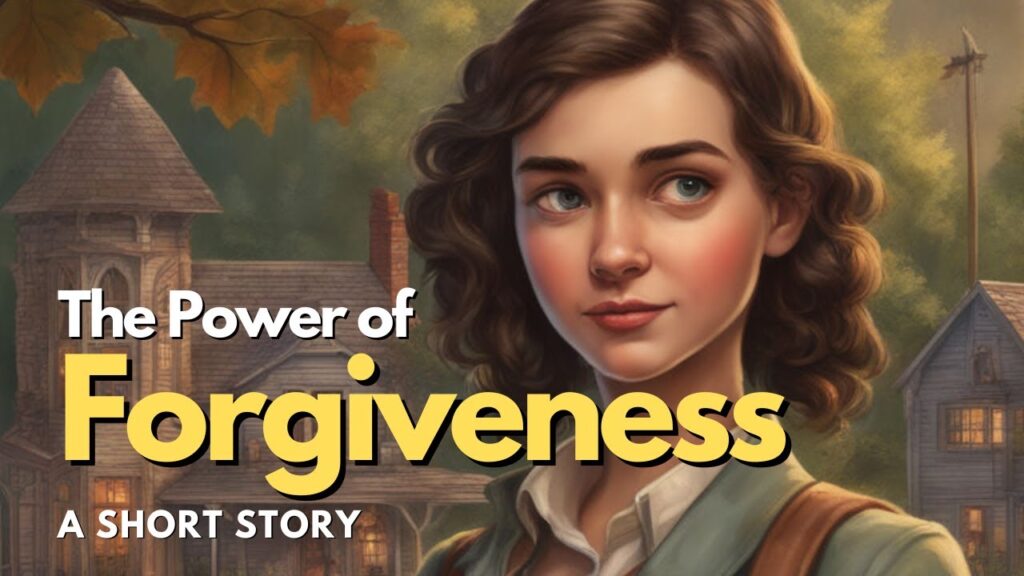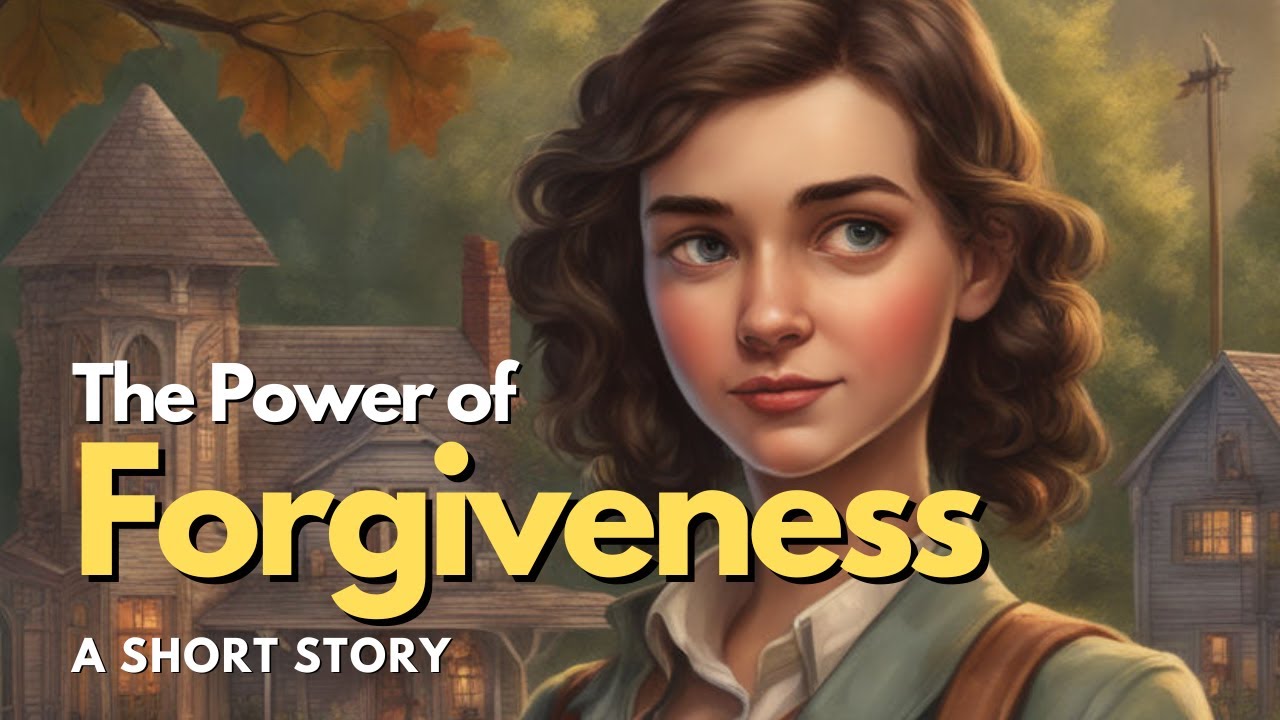
The Power of a Forgiveness Story: Finding Healing and Redemption
Forgiveness, often described as a virtue, is a complex and powerful process. A forgiveness story can be a beacon of hope, illustrating the transformative potential of letting go of resentment and embracing compassion. This article delves into the profound impact of forgiveness stories, examining how they promote healing, reconciliation, and personal growth. Through exploring various narratives and psychological insights, we aim to understand why forgiveness remains a cornerstone of human relationships and individual well-being. The act of forgiveness itself is a journey, often a difficult one, but one that can lead to profound freedom.
Understanding Forgiveness: More Than Just Forgetting
Forgiveness is not about condoning harmful actions or pretending they never happened. Instead, it involves acknowledging the pain caused by another person, processing the emotions associated with that pain, and choosing to release the anger, resentment, and desire for revenge. This doesn’t necessarily mean reconciling with the offender; it’s primarily about liberating oneself from the burden of negativity. A crucial element in any forgiveness story is the internal shift that occurs within the person granting forgiveness.
The Psychological Benefits of Forgiveness
Research consistently demonstrates the positive psychological effects of forgiveness. Studies have shown that individuals who forgive experience reduced stress, anxiety, and depression. They also tend to have stronger immune systems, better cardiovascular health, and improved sleep quality. Holding onto grudges, on the other hand, can lead to chronic stress and a host of health problems. The act of sharing a forgiveness story can be therapeutic, both for the person who has been wronged and for those who witness the transformative power of forgiveness.
The Difference Between Forgiveness and Reconciliation
It’s important to distinguish between forgiveness and reconciliation. Forgiveness is an internal process, while reconciliation involves restoring a relationship. While forgiveness can pave the way for reconciliation, it doesn’t guarantee it. In some cases, reconciliation may not be possible or even desirable, especially if the offender is unrepentant or continues to engage in harmful behavior. A forgiveness story might end with reconciliation, but it can also end with the forgiveness giver finding peace without a renewed relationship.
Compelling Forgiveness Stories: Examples of Transformation
Numerous real-life forgiveness stories illustrate the transformative power of letting go. These narratives often involve individuals who have experienced profound betrayal, loss, or injustice, yet have found the strength to forgive.
The Story of Eva Mozes Kor: Forgiving the Nazis
Eva Mozes Kor, a Holocaust survivor who endured horrific experiments at Auschwitz, became a powerful advocate for forgiveness. Despite the unimaginable suffering she experienced, Eva publicly forgave the Nazi doctors who had tortured her and her twin sister. Her act of forgiveness was not intended to excuse their actions, but rather to liberate herself from the bitterness and hatred that had consumed her for decades. Eva’s forgiveness story is a testament to the resilience of the human spirit and the capacity for healing even in the face of unspeakable evil. [See also: Overcoming Trauma Through Forgiveness]
The Story of Nelson Mandela: Forgiving Apartheid
Nelson Mandela, who spent 27 years in prison for his fight against apartheid in South Africa, emerged from captivity with a message of reconciliation and forgiveness. Instead of seeking revenge against his oppressors, Mandela chose to lead his nation towards unity and healing. His ability to forgive those who had imprisoned him was instrumental in preventing a civil war and establishing a democratic South Africa. Mandela’s forgiveness story is a powerful example of how forgiveness can be a catalyst for social change.
The Story of Immaculée Ilibagiza: Forgiving the Killers of Her Family
Immaculée Ilibagiza, a survivor of the Rwandan genocide, hid in a bathroom with seven other women for 91 days while members of her family were murdered. After the genocide, Immaculée found the strength to forgive the men who had killed her loved ones. Her faith and her understanding of the power of forgiveness helped her to overcome the trauma and to dedicate her life to promoting peace and reconciliation. Immaculée’s forgiveness story highlights the profound impact that forgiveness can have on personal healing and the promotion of global harmony. [See also: The Role of Faith in Forgiveness]
The Process of Forgiveness: A Step-by-Step Guide
Forgiveness is not a one-time event, but rather a process that unfolds over time. There’s no single “right” way to forgive, but the following steps can provide a helpful framework:
- Acknowledge the Pain: The first step is to acknowledge the pain that has been caused by the offense. This involves recognizing the emotions associated with the pain, such as anger, sadness, and fear.
- Process the Emotions: It’s important to process these emotions in a healthy way. This may involve talking to a therapist, journaling, or engaging in other forms of self-care.
- Gain Perspective: Try to understand the offender’s perspective, even if you don’t agree with their actions. This can help to foster empathy and compassion.
- Make a Conscious Decision to Forgive: Forgiveness is a choice. Decide to release the anger, resentment, and desire for revenge.
- Let Go of Expectations: Don’t expect the offender to apologize or change their behavior. Forgiveness is about liberating yourself, not about controlling others.
- Practice Self-Compassion: Be kind to yourself throughout the forgiveness process. It’s okay to have setbacks and to experience moments of doubt.
The Impact of Forgiveness on Relationships
Forgiveness plays a vital role in maintaining healthy relationships. When we hold onto grudges, we create distance and resentment, which can ultimately damage or destroy our connections with others. Forgiveness, on the other hand, allows us to move forward and rebuild trust. A forgiveness story involving interpersonal relationships often showcases the renewed strength and deeper understanding that can emerge after a period of conflict and forgiveness.
Forgiveness in Romantic Relationships
Forgiveness is essential for the long-term success of romantic relationships. No relationship is perfect, and disagreements, misunderstandings, and even betrayals are inevitable. Couples who are able to forgive each other are more likely to weather these storms and to maintain a strong and loving bond. [See also: Building Trust After Betrayal]
Forgiveness in Family Relationships
Family relationships can be particularly challenging, as they often involve complex dynamics and long-standing patterns of behavior. Forgiveness is crucial for healing old wounds and creating a more harmonious family environment. A powerful forgiveness story within a family context can inspire others to address their own conflicts and seek reconciliation.
Forgiveness in Friendships
Friendships, like all relationships, require forgiveness. Friends may disappoint us, betray our trust, or say hurtful things. Forgiveness allows us to move past these hurts and to maintain meaningful connections with our friends.
The Challenges of Forgiveness
Forgiveness is not always easy. It can be particularly challenging when the offense is severe, when the offender is unrepentant, or when we have been repeatedly hurt by the same person. However, even in the most difficult circumstances, forgiveness is possible. It requires courage, compassion, and a willingness to let go of the past.
When Forgiveness Feels Impossible
There may be times when forgiveness feels impossible. In these situations, it’s important to be patient with yourself and to seek support from others. A therapist or counselor can provide guidance and help you to work through the emotions that are blocking your ability to forgive. Remember that forgiveness is a process, not a destination.
The Importance of Self-Forgiveness
While forgiveness of others is important, self-forgiveness is equally crucial. We all make mistakes, and it’s essential to be able to forgive ourselves for our own shortcomings. Self-forgiveness allows us to learn from our mistakes and to move forward with greater self-acceptance and compassion. Learning self-forgiveness can be a vital part of any forgiveness story. [See also: Practicing Self-Compassion Daily]
Conclusion: Embracing Forgiveness for a Better Future
Forgiveness is a powerful tool for healing, reconciliation, and personal growth. By choosing to let go of resentment and embrace compassion, we can liberate ourselves from the burden of negativity and create a more peaceful and fulfilling life. A forgiveness story serves as a reminder of the human capacity for resilience and the transformative power of forgiveness. Whether it’s forgiving a loved one, a stranger, or even ourselves, the act of forgiveness can lead to profound and lasting change.

